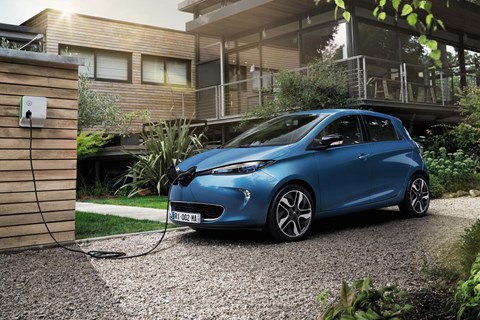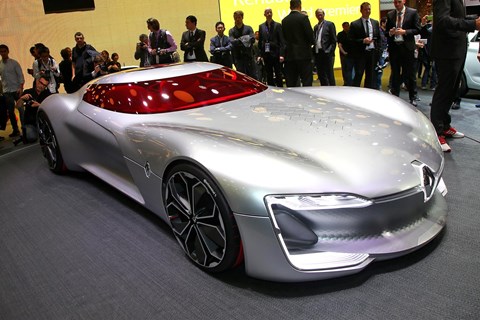► Electric cars will be at the core of Renault’s sales drive
► Longer EV range allows more buyers to embrace them
► Renault’s apps reduce the perceived hassles of EV driving
The recently revealed Trezor is not an out-and-out statement of intent about a future sports coupe for the French marque, but instead a tangible reaffirming that the future of Renault revolves around electric cars.
We spoke to the head of Renault’s all-electric ZE division, Eric Feunteun, to find out more.
Long-range Zoe: real-world star of the Paris show?
While the Trezor was undoubtedly the attention grabber on Renault’s stand at the Paris motor show, of more relevance was the new battery fitted to the Zoe. It offers improved capacity, extending the range to 403km (250 miles) according to the standardised test.
Renault fully expects that this will spark an increase in demand for the Zoe and its other ZE models, a sales upshift it has the capacity to deal with – although Feunteun wouldn’t be drawn on specific sales targets.

According to Renault the new battery will offer a real-world range of 160-180 miles between recharges, although Feunteun confirms the 400km figure is achievable in the right conditions: ‘You could do it on the M25, but it wouldn’t be the most exciting of drives,’ he proffers.
EV buyers still demand pragmatism over sportiness
Clear technical lessons can be learned by the Renault ZE team from ongoing engineering efforts within Formula E and Formula 1, but the key theme here isn’t yet for high-performance EVs. They will come, but right now offering people a viable alternative to a more conventional internal combustion-propelled car is more important – and the Zoe now fits that bill for a greater number of potential customers.
The new long-range Zoe is expected to cost around £2200 more than existing variants when UK sales begin in November, but whole-life costs of the car are expected to reduce with the advance of smart-charging and a greater need by electricity production companies to offload excess capacity during non-peak hours.
Feunteun cites that 95% of EV owners charge their car at the home or office, so if this is done off peak it can actually result in a rebate back from the electricity producer: ‘Part of the value of owning an EV comes from when it’s not been driven.’
Renault’s electric future
Now that range anxiety has been more effectively dealt with, the last bane of the EV driver’s life is finding a an available charging bay. This is something that the latest ZE app Renault will be able to assist with, and the system’s due to be rolled out to British customers during 2017.

As part of the first wave of EV-only cars, the Zoe’s distinctive enough from the Clio for customers to be able to make a statement celebrating their embracing of zero-emission cars.
Feunteun concedes that packaging advances could permit the second generation of cars appearing in the next decade to have ‘wackier styling’, but whether buyers are willing to embrace designs that are too far removed from the norm remains to be seen.
What is clear is that Renault’s dominance of the EV market is a position it intends to capitalise on with a continued product offensive.
Read more CAR tech news and features